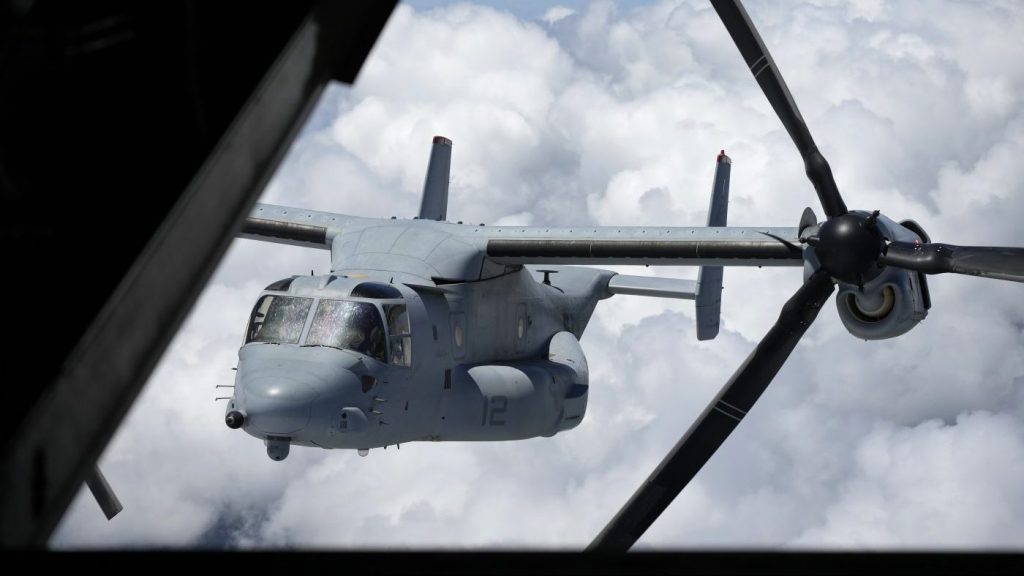The U.S. military officially ended a ban on Osprey flights on Friday. The ban was put in place after a crash that killed eight Marines in November near Japan.
Naval Air Systems Command (NAVAIR) lifted the grounding of the V-22 Osprey on Friday morning after officials used a careful and data-driven approach to make the decision. However, the cause of the recent crash is still not known.
Officials stated that they have made maintenance and procedural changes to address the material failure and ensure safe flights. in a statement. “The V-22 plays an integral role in supporting our nation’s defense and returning these vital assets to flight is critical to supporting our nation’s interests.”
NAVAIR said officials worked with the U.S. Air Force to identify the material failure that caused the November Osprey crash, but the investigation into the incident remains open and it’s still not exactly clear what the material failure is.
The ban’s lifting, which comes after Defense Secretary Lloyd Austin met with NAVAIR officials and endorsed the decision to unground the fleet, paves the way for the Air Force, the Navy and the Marines to use the Osprey once again.
U.S. Air Force Special Operations Command said it would implement the Osprey back into service through phases, the first of which involves ground and simulator training, safety briefings, as well as training by squadron. The second would involve a “multi-month” process for aircrew to receive training on maintenance, while the third would involve full resumption of exercises and deployments with the aircraft.
The November crash in Japan saw the Osprey roll over midflight, and witnesses described the engine catching on fire.
In early December, the U.S. announced it was grounding its entire fleet of roughly 400 Osprey aircraft.
The hybrid aircraft has crashed repeatedly over its lifetime, killing more than 50 service members.
The Osprey is unique and often used for special forces because it can take off like a helicopter but cruise at faster speeds like an airplane.
House Oversight and Accountability Committee Chair Rep. James Comer (R-Ky.) launched an investigation into the historical problems of the Osprey following the Japan crash. He criticized the Pentagon for lifting the aircraft's grounding without providing him the materials needed for his investigation.
“Serious concerns remain such as accountability measures put in place to prevent crashes, a general lack of transparency, how maintenance and operational upkeep is prioritized, and how [the Defense Department] assesses risks,” Comer said in a statement this week. “We will continue to rigorously investigate the [Defense Department’s] Osprey program to attain answers to our questions on behalf of American taxpayers and protect U.S. servicemembers defending our nation.”
Updated at 3:40 p.m. ET









